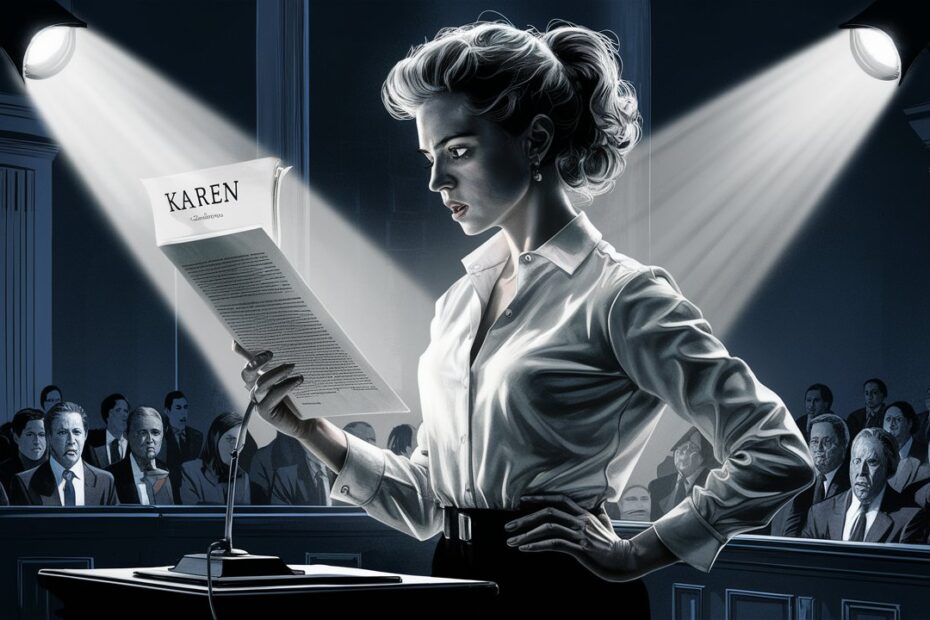1. Introduction to Karen Read: Karen Read, a name that became widely recognized due to a significant criminal case, has been at the center of intense media scrutiny and legal debate. Her case highlights complex issues within the criminal justice system and the effects of public and media attention on legal proceedings.
2. Background Information: Karen Read’s personal background before her involvement in the case is not extensively documented in the public domain. Generally, she was known as an individual leading a seemingly ordinary life. However, her life took a dramatic turn when she became the subject of a high-profile criminal investigation.
3. The Criminal Case: Karen Read’s notoriety stems from her involvement in a controversial criminal case. The case revolved around serious allegations that led to significant legal and public attention. She was accused of a violent crime that resulted in the death of a well-known individual. The nature of the crime, the charges filed against her, and the subsequent legal process were widely covered by the media, amplifying public interest and debate.
4. Legal Proceedings: The legal journey for Karen Read involved several critical stages:
- Arrest and Charges: Karen Read was arrested following the incident, and formal charges were brought against her. These charges included accusations of serious criminal activity that had severe consequences for the victim and their family.
- Court Hearings: The case went through various court hearings where evidence was presented, and legal arguments were made. The hearings were characterized by intense scrutiny from both the public and media, highlighting the high stakes involved.
- Trial: The trial phase of Karen Read’s case was marked by detailed presentations from both the prosecution and defense. The prosecution sought to establish guilt through evidence and witness testimonies, while the defense aimed to counter the allegations and present a case for Read’s innocence or mitigation.
- Verdict and Sentencing: Following the trial, a verdict was reached. Depending on the outcome, Karen Read either faced conviction or acquittal. If convicted, she would have been sentenced according to the severity of the crime and the legal standards applied.
5. Media and Public Attention: Karen Read’s case attracted significant media coverage due to the nature of the charges and the high profile of the victim. The media extensively covered the trial, often focusing on dramatic aspects of the case, legal strategies, and personal details of those involved. This media attention had a considerable impact on public perception and the judicial process:
- Media Influence: The extensive media coverage influenced public opinion and brought heightened scrutiny to every aspect of the case. This could affect juror impartiality, public sentiment, and even the proceedings themselves.
- Public Reaction: The case prompted a range of reactions from the public, including debates about the legal process, the role of media in high-profile cases, and issues of justice and fairness. Public opinion played a role in shaping the narrative around the case.
6. Legal and Ethical Implications: Karen Read’s case underscores several key issues in the legal system:
- Fair Trial: The case raised questions about the fairness of the trial process in the context of intense media and public scrutiny. Ensuring that a defendant receives a fair trial, regardless of public opinion, is a cornerstone of the legal system.
- Legal Representation: The case highlighted the importance of competent legal representation. The defense team’s role in presenting a strong case and challenging the prosecution’s arguments is crucial for upholding the rights of the accused.
- Media Influence: The influence of media on high-profile cases is a significant concern. The portrayal of the case in the media can impact public perception and, in some cases, the legal process itself.
7. Personal Impact: The legal battle and public attention had profound effects on Karen Read’s personal life. The stress and challenges associated with being at the center of a high-profile case can be overwhelming. This includes:
- Reputation: The charges and media coverage affected Read’s reputation, both personally and professionally. The stigma associated with serious criminal allegations can have long-lasting effects on an individual’s life.
- Emotional and Psychological Impact: The emotional toll of being involved in such a high-profile case, dealing with legal proceedings, and facing public scrutiny can be significant. This experience often involves considerable psychological stress and personal challenges.
8. Support and Advocacy: Throughout the legal process, Karen Read may have received support from various advocacy groups and legal professionals:
- Legal Support: Her defense team played a crucial role in navigating the complexities of the case, representing her interests, and ensuring her rights were protected.
- Advocacy Groups: Organizations focused on criminal justice reform and the rights of the accused may have been involved, offering support and raising awareness about broader issues related to the case.
9. Broader Implications: Karen Read’s case has broader implications for the criminal justice system:
- Criminal Justice Reform: The case contributes to discussions about criminal justice reform, including the need for reforms to ensure fair trials and address issues related to media influence.
- Legal Precedents: The outcome of the case and the legal arguments presented may influence future cases and legal precedents, shaping how similar cases are handled in the future.
10. Conclusion: Karen Read’s case remains a notable example of how individual lives can be dramatically affected by the intersection of criminal allegations, media scrutiny, and legal proceedings. It serves as a reminder of the complexities involved in high-profile legal cases and the importance of ensuring a fair and just legal process.
